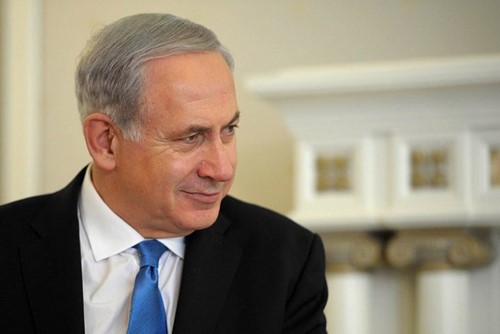Earlier this week, Benjamin (known as “Bibi”) Netanyahu was reelected prime minister of Israel. Having served for a combined total of 15 years so far, his phoenix-like comeback to the premiership testifies to the fact that he has garnered sufficient public support to stay in power. A polarizing figure, Netanyahu tends to inspire both adulation and chagrin among Israelis. Even more so, he inspires those feelings internationally. However, before one can dissect the significance of Netanyahu’s reelection, it is important to understand the precarious geopolitical landscape in which Israel finds itself.
Israel faces a complex, threat-filled environment, both domestically and internationally. From the Palestinian question to the internal division between secular and ultra-Orthodox Jews, Israel must contend with numerous challenges, in addition to the many identities that Israel must balance internationally. For many Arab countries, since the signing of the Abraham Accords, Israel is a trading partner yet not quite an ally. For the United States, Israel is a strategic beacon of democracy in a sea of authoritarian regimes. On the American right, the religious significance of Israel trumps its secular considerations. On the American left, the Palestinian question interminably undermines the legitimacy of Israel. Already, it is easy to sense tension between the security interests and the political interests of the United States. Add to that the fact that Israel is the only Jewish state in the world, and questions of antisemitism clash with the political and security interests not only of the United States, but of other liberal democracies. At what point does criticism of Israeli politics and policies cross over into antisemitism, or hatred of the Jewish people? Given its strategic importance, should Israel be held to a higher moral and ethical standard than other liberal democracies? And if so, how can it balance that standard with its need to ensure its security in such a dangerous neighborhood?
Enter Bibi Netanyahu. The son of well-known academic Benzion Netanyahu, an expert in Sephardic Jewish history during the Spanish Inquisition, it is easy to understand the early influences that shaped Netanyahu’s conception of the Jewish and Zionist narrative. Benzion Netanyahu gleaned two major lessons from his study of the Spanish Inquisition: first, “that assimilation does not work,” and second, “that the Jews are naïve when it comes to heeding warnings.” The right-wing policies that Netanyahu has advocated during his time in office affirm these fundamental beliefs. He ran for the premiership the first time following the assassination of Prime Minister Yitzhak Rabin in 1995, following the Oslo Accords between Israel and the Palestinians. He ran on a platform of utter rejection and skepticism of Rabin’s policies, and yet ironically he was tasked with carrying them out after his election. He then staged his first comeback to the premiership a decade after being thrown out of office in 1999, elected in 2009 and staying in the role until 2021. In this most recent election, however, Netanyahu has consolidated his power around a coalition that features more hard-right elements than his previous coalition governments. As much of the world experiences a shift toward the right of the political spectrum, Israel is not an exception.
As a parliamentary system, the Israeli government must form coalition governments to maintain a majority in the Knesset. Consequently, sometimes unsavory marriages among parties must be consecrated. In this case, the Likud Party, of which Bibi Netanyahu is the leader, has formed a coalition with Religious Zionism and two ultra-Orthodox parties. These extreme parties want “immunity from prosecution for Israeli soldiers, the expansion of illegal settlement building in the occupied West Bank, and reversals of LGBT-friendly laws.” Even though it remains unclear how these platforms will come out in the wash, so to speak, the fact that such extreme positions have made their way into the Israeli government is cause for concern. The only platform that Netanyahu shares with these small, fringe parties is opposition to a Palestinian state, which all involved agree would threaten the security of Israel. When tensions between Israelis and Palestinians are escalating, perceptions and signals matter. Whether Netanyahu can balance all those metaphorical plates in the air remains to be seen. Will he be able to juggle the need to maintain his coalition, project power onto the Palestinians to deter them from excessive violence, and maintain security for the Israeli people? As one of the most adept politicians in the world, Netanyahu stands a better chance than people might think of doing just that.
Something about Netanyahu has captivated the Israeli public, something that many outsiders do not fully comprehend. This missing element feeds directly into the cognitive dissonance between the Israeli public and the international community. Israelis live in a precarious neighborhood, and security is paramount to them. Liberty, while important, is a luxury that comes second to stability and security. They live under constant threat, be it from the Palestinians, Iran, Iranian terrorist proxies, or other state and non-state actors that seek the destruction of the Jewish state. As a result, they often look to a strong leader to maintain their security. While many in both the Labor (left-wing) and Likud (right-wing) parties stress security, the Likud galvanizes support around that concept. Even considering the corruption charges that Netanyahu currently faces—and categorically denies—the Israeli populace continues to see him as a figure capable of leading Israel to where it needs to be. The world must hope and pray that Benjamin Netanyahu’s political acumen will keep the threats to Israel at bay while recognizing the need for brave and open-minded leadership.
Ryan Lee is a graduate student in the second year of his MA in International Security program at the Schar School of Policy and Government. He holds a BA in Political Science and Spanish from Muhlenberg College in Allentown, Pennsylvania. He currently teaches Spanish, History, Government, and Economics at the high school level. After earning his degree, he hopes to pursue a career in foreign policy and diplomacy.
Photo can be found here.




